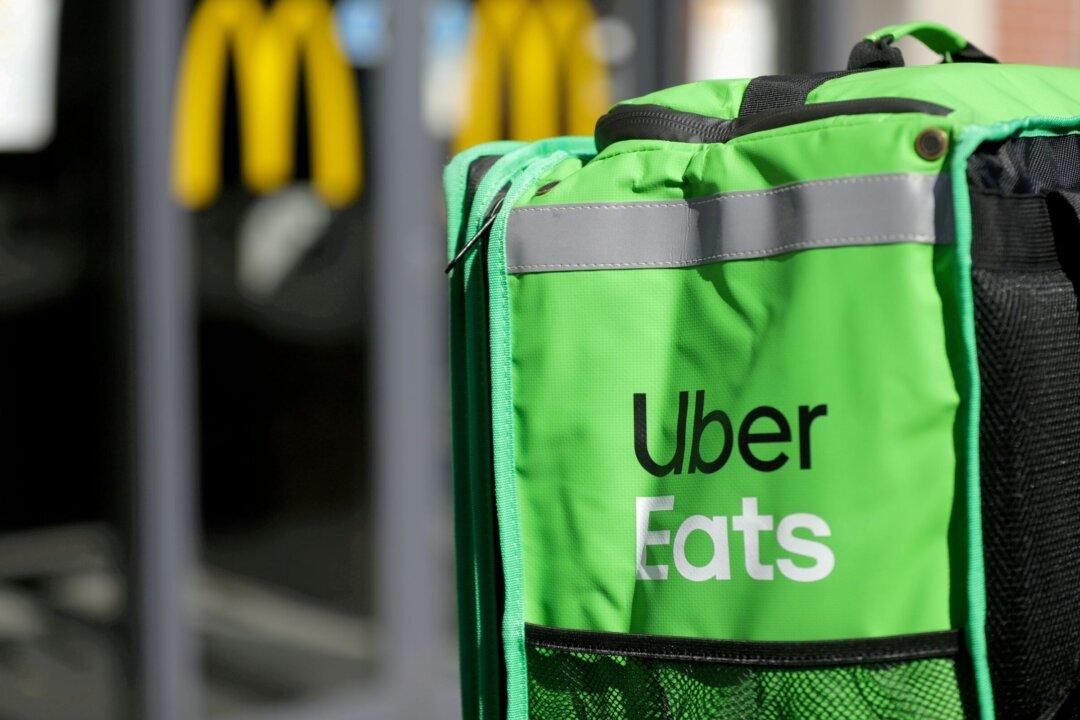Multiple food-delivery services filed a lawsuit against New York City on July 5 seeking to block a new law establishing higher minimum wages for food-delivery workers, including app-based delivery workers.
DoorDash and Grubhub filed a joint lawsuit against the city in the Supreme Court of the State of New York, while Uber, the parent company of Uber Eats, filed its lawsuit separately, as did New York-based Relay Delivery.




